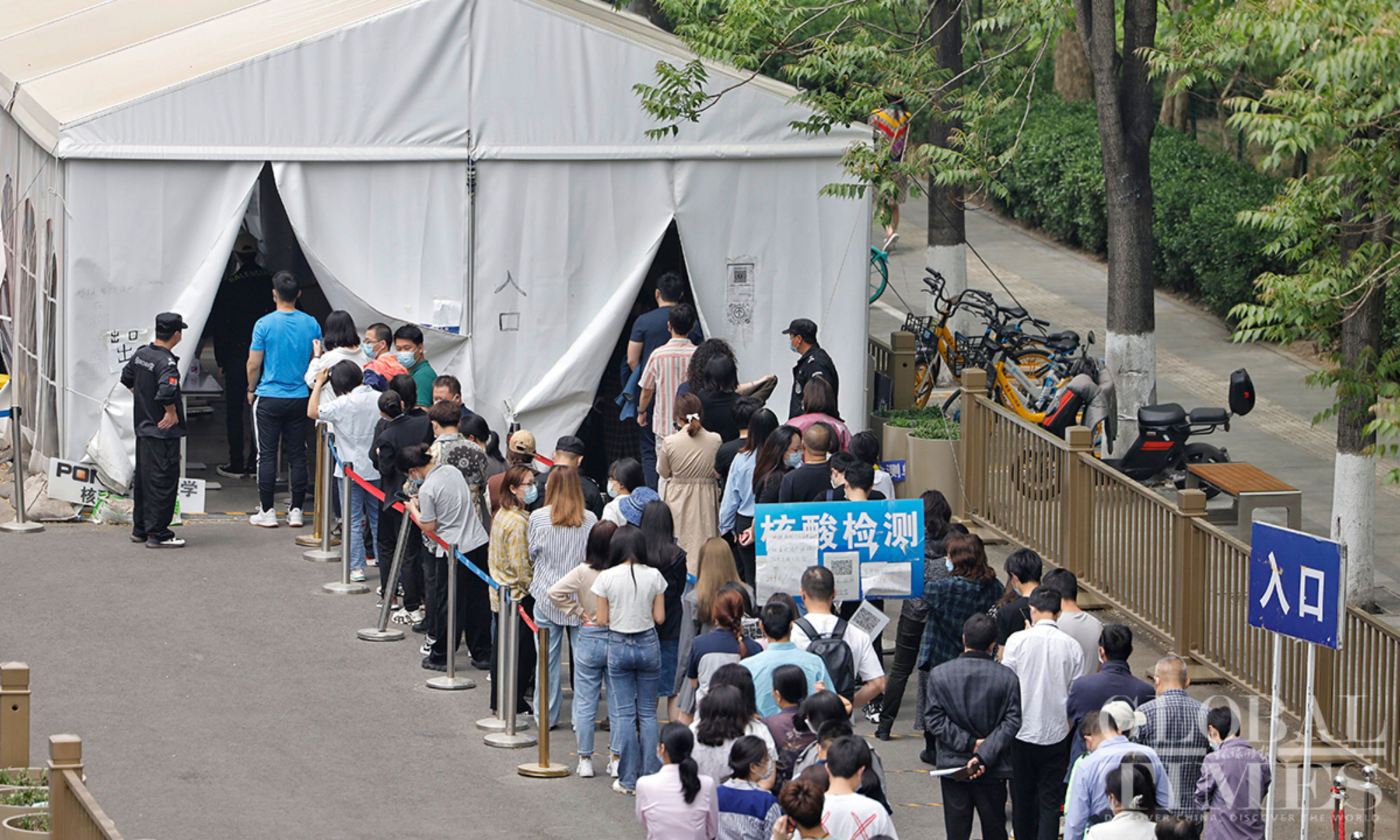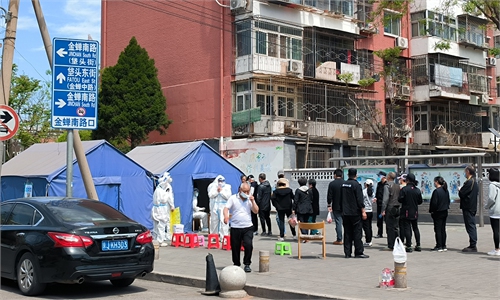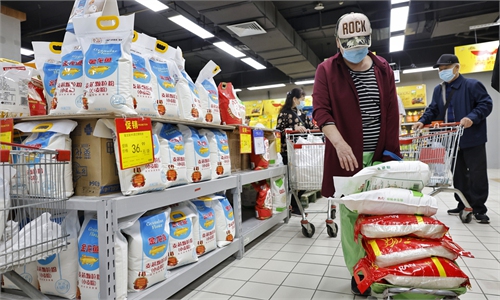Beijing launches mass testing for nearly 90% of its population, 'timely, decisive and necessary'

Photos: Li Hao/GT
Beijing's health authorities announced at a late night news conference that the Chinese capital will launch mass nucleic acid testing on its nearly 20 million residents, about 90 percent of the population, on Tuesday, after the city reported 70 COVID-19 infections in eight districts in the last four days.
Eleven more areas in the city, including 10 districts and Beijing Economic-Technological Development Area will start doing mass testing of their residents on Tuesday after Chaoyang district started nucleic acid testing on Monday. According to the 2021 census, the total population of these areas is nearly 20 million while Beijing's total population is 21.89 million.
Wei Sheng, public health expert from the School of Public Health of the Huazhong University of Science and Technology, told the Global Times on Monday night that the wider range of mass nucleic acid testing is very timely, decisive and also necessary.
"Mass nucleic acid testing is the most effective method in screening out all potential infections and prevent a large-scale outbreak of Omicron," Wei said.
The extraordinary infection rate of the Omicron variant has created difficulties in epidemiological investigation as transmission chain tracking cannot keep pace with the spread of the virus, said Wei, noting that research shows that Omicron can infect a person within a day. Therefore, this variant may have spread further if we still use the existing epidemiological investigation to find and control all potential infections.
Therefore, in order to detect potential infections as soon as possible and cut the transmission chain of the virus, the best way currently is to complete multiple rounds of nucleic acid tests in a short period of time, such as 48 or 72 hours, to catch up with the speed of transmission of Omicron, Wei said.
"Our studies showed that if we discover five infections at once, and then conduct three rounds of mass nucleic acid testing within 48 hours, the number of infections could be reduced to less than 20 within a week," the public health expert added.
He explained that to detect a potential infection, it is very necessary to carry out several rounds of nucleic acid testing in a short time because, although the incubation period of Omicron is shorter, it is still different in each individual. "According to previous experience, it usually takes two or three rounds of nucleic acid testing to identify all potential infections," Wei remarked.
In addition to nucleic acid testing, Wei believes that proper control of gatherings and mobility of people is also a necessary means to quickly cut off the transmission path. "This does not necessarily require a complete lockdown of the city. If not controlled, the infections may be doubled in two days."
On Monday, Chaoyang district, where 46 of the 70 infections were reported in the latest outbreak, tested 3,691,200 residents and workers. As of Monday evening 526,457 results came back, all negative, said Yang Beibei, an official from the Chaoyang district government.
Residents of Chaoyang district will undergo two more rounds of nucleic acid testing on Wednesday and Friday. Residents of the other 11 areas will receive three rounds of testing on Tuesday, Thursday and Saturday.
Xu Hejian, spokesperson of the Beijing municipal government, said that the current epidemic control in the city is effective. All new cases have been found in the population under management.
Companies in Beijing have also been recommended to lower attendance appropriately and encourage remote working.
Beijing also suspended large gatherings such as performances, sporting events and trade fairs. Offline training courses and interior decoration works were also suspended until three rounds of nucleic acid testing are completed.
Beijing residents are advised to stay in the city during the upcoming May Day holidays and to reduce gatherings and parties.
As of Monday afternoon, a total of 2,116 residents were classified as close contacts and pandemic preventive measures were put in place at the locations they visited, according to Yang.
On Monday, the authorities of Chaoyang put an area in the southeastern part under strict management, several blocks away from the central business district. All residents within the area are required to stay in the zone. Besides hospitals and markets, all other businesses have suspended operations.
A few weeks ago, on April 4, Shanghai conducted citywide nucleic acid testing on its 25 million citizens in a day, which is a world record.



